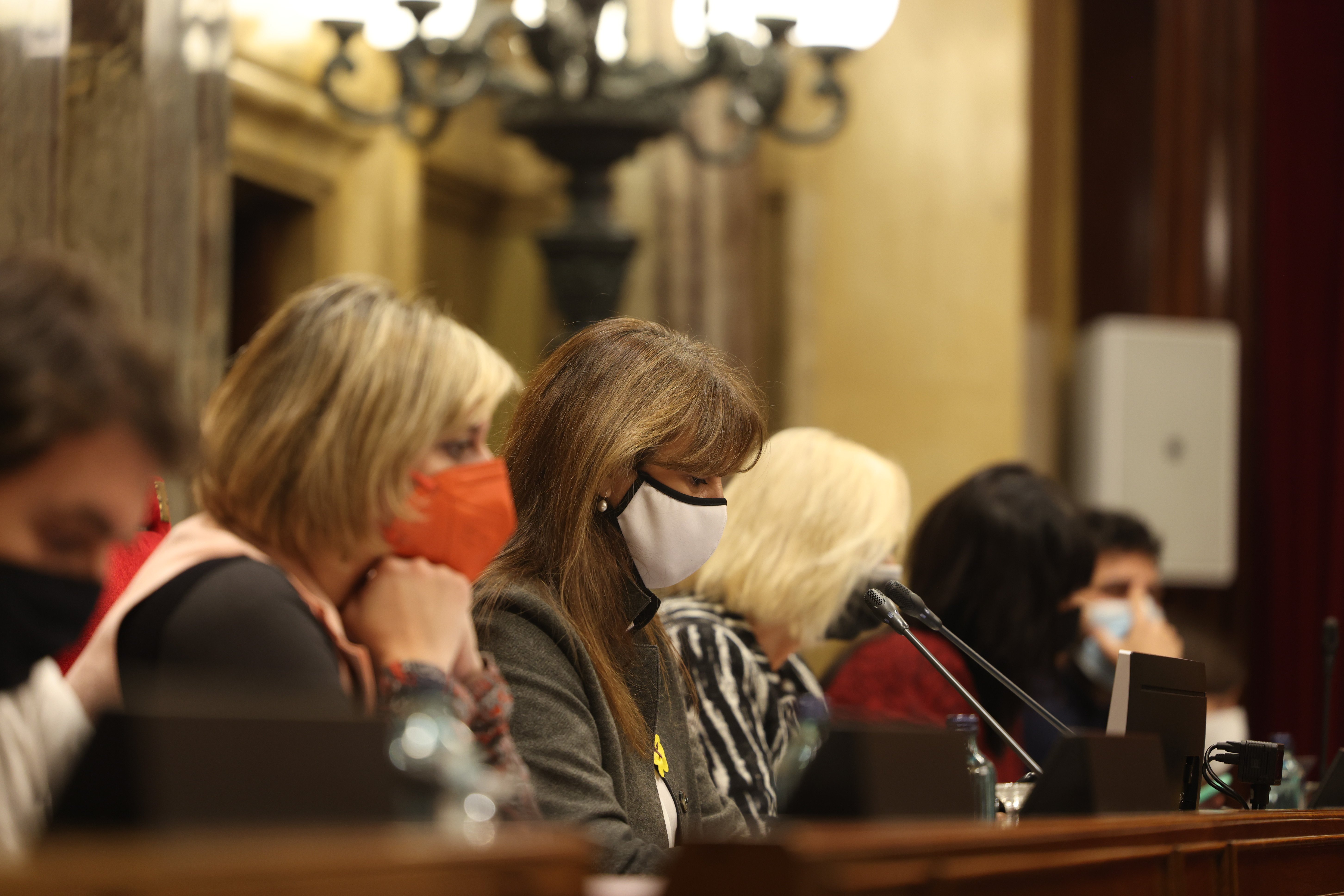The Bureau of the Catalan Parliament has this Tuesday made a commitment to work to eliminate the special regime that allows public servants at the Catalan chamber to continue to be paid despite not working, known as "age leave", and has unanimously agreed on the need to reach a new agreement with the house's support employees, following the publication by the newspaper Ara that the Parliament pays out 1.7 million euros annually to 21 civil servants who do not work and are over 60 years old. Before the outbreak of this media controversy, the speaker, Laura Borràs, had already begun taking action to reverse a situation that she described as "counterproductive". She is the first speaker of Parliament to address the issue since the scheme came into force in 2008.
The reform of the anomaly which Borràs presented before Christmas resulted in a reduction from five years to three years as the period for which civil servants can continue to receive their salary without working, a measure that was approved unanimously by the Bureau on 21st December. At that point no one said anything, but controversy spread and the parties began to reject the agreement before Christmas; thus, Bureau member have agreed this Tuesday to work to reach a new agreement to prevent workers from being paid without working in the last few years before retiring. According to sources in the Catalan chamber, an agreement has in fact been reached today. But this does not mean that the solution will come automatically or that the 2021 agreement will be automatically annulled, but rather, it is a declaration of intent that will now have to be materialized through negotiating with the employees.
A new agreement this year
The complexity comes about because the Bureau alone cannot decide to end the "age leave" plan, as it was based on agreement with the Works Council, bringing together employees of the Parliament and their employers. The aim is to reach an agreement in 2022, and it remains to be seen what will happen to the cases of workers who have applied to join the regime but are not yet benefitting from it. It is for this reason that the Bureau has commissioned a report from the general secretariat and senior lawyer to analyze whether there is a possibility of stopping pending cases. It is generally thought that nothing can be done to stop the cases of the twenty-one officials who are at present being paid without working, because it is a case of 'acquired rights'. Thus, it is almost ruled out that the new agreement will have a retroactive effect.
As well, the Bureau has decided that the second deputy speaker, Assumpta Escarp, will present a proposal next week on how to improve the current internal transparency body. Precisely as a result of tensions over information, the three members of this transparency body have resigned, including former lawyer Antoni Bayona. These three members are to be replaced, but today the Bureau has not yet addressed their replacement.
Being paid for not working
As many as 21 parliamentary officials are included in this scheme, including two former secretaries-general, senior parliamentary officials, who earn more than 10,000 euros a month without working. Those who earn least but benefit from the same situation are the auxiliary ushers, who earn 3,800 euros a month. In total, 1.7 million euros have been paid annually to officials who are not working in the chamber.
Under the plan, those who had been working in Parliament for 15 years were elegible to benefit from this regime, and were able to continue in this status until their retirement. Consequently, there were posts which no-one was covering, but at the same time, no new employees could be hired to do those those jobs, as the peculiarity of the leave permit did not allow it.
Borràs's position
In an interview after the news broke, the speaker Laura Borràs made clear her opposition to the Age Leave employment regime and stated: "People have to work until they retire, and from here onwards, the workforce needs to be renewed rationally." These permits have been in place since 2008 and have not changed in all these years. Faced with this fact, Borràs stressed that she could not be "responsible" for what was happening before, only for what is happening now, under her speakership.
After the leak of all this information, president Pere Aragonès assured that "in the field of the administration of the Generalitat there are no cases" such as those of the twenty officials at Parliament. He stated this yesterday during his visit to the laboratories of the bio-tech pharmaceutical company Hipra, which is developing the first Catalan vaccine against Covid-19. "Given the situation as we know it today, it is Parliament, the Bureau and the office of the speaker that have to make the decisions," he asserted. For her part, ERC spokesperson Marta Vilalta said that the party was not aware of these irregularities.

